Raking leaves becomes a common home duty when the warm embrace of summer gradually gives way to the cold embrace of fall.
Raking leaves symbolize a deeper bond between people and nature that goes beyond its surface-level role as a seasonal chore.
Leaf raking is an intricate activity that weaves our lives into the ever-evolving fabric of nature, from searching for visual harmony to maintaining ecosystem health and much more.
It can be a self-reliant activity when the area is manageable, allowing families to employ efficient leaf cleanup strategies in their backyards. For larger areas, or if you cannot do it yourself, seeking professional help may be the way forward.
If you have a way to rake leaves, then you may do it on your own. But let’s first find out why people need to rake leaves.
Why Do People Rake Leaves: Significance and Rituals
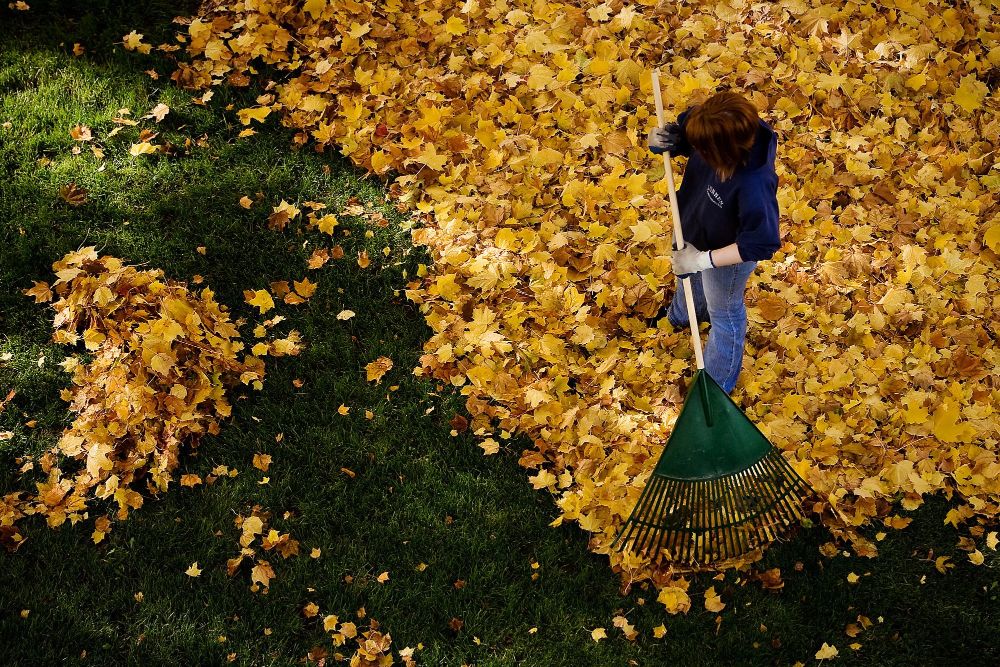
The age-old custom of raking leaves is more than just a menial task; it represents a deeper bond between people and nature and a natural desire to care for our environment.
1. An Attractive Neighborhood
Raking leaves is one of the most straightforward things for aesthetic purposes. A neat, tidy, well-maintained lawn exudes order, cleanliness, and care.
A yard free from fallen leaves has an amazing look, creating a stage for other landscaping features to flourish. A neat lawn also adds to the neighborhood’s general aesthetics, encouraging a sense of pride and fellowship among locals.
It strengthens the notion that we are stewards of our common environment when this joint effort is replicated throughout a neighborhood and fosters cohesion among the neighbors and all those near you.
2. Preventing Damage to The Lawn
When unattended, leaves can endanger the health of the grass. Fallen leaves that are too thick might prevent sunshine and air from reaching the grass below, suffocating it and perhaps promoting fungal development. In addition, a build-up of moist leaves may serve as a breeding ground for pests, leading to diseases. This may harm the plants there over the long run.
The lack of aeration and the reach of sunlight to the ground can prevent the proper development of the grass under it. Thus, removing or raking this cover of dried leaves from your lawn or backyard is significant.
3. A Healthy Ecosystem
The practice of leaf raking has an ecological benefit that extends beyond the boundaries of particular lawns. When undisturbed, leaves may degrade over time and feed the soil with vital nutrients. Raking leaves, however, guarantees their correct removal or use in composting, reducing possible harm to the ecology in the Urban setting.
Human intervention is required because pavement and other constructions obstruct the natural decomposition cycle. We support the maintenance of neighborhood ecosystems by raking leaves and either composting them or appropriately discarding them.
4. For Safety
Raking leaves becomes a crucial fire protection technique in areas where wildfires are common. Dry leaves may be highly explosive, posing a serious risk to houses and communities, particularly under drought circumstances. Regular leaf clearance reduces the possibility of fire threats by taking preventive action.
Thus, employing creative methods for leaf removal serves as a proactive step in mitigating fire risks and protecting both property and life. The frequent clearing of highly combustible fallen leaves is essential, emphasizing the need for caution.
5. Other Significance
It is a physical activity that connects people to nature and gives them exercise. This activity may also encourage mindfulness and well-being. Taking care of one’s surroundings can be soothing and serve as a reprieve from the stress of contemporary life.
Also, autumn leaf raking festivals are held in several cultures as social gatherings that promote harmony and environmental responsibility. These customs seldom remind us that we are in an alliance with nature.
Raking the dried leaves, especially during the autumn season when they fall, is a completely personal task, and you wish to rake them or let them be. The reasons we mentioned above are those who are considered significant and perform this activity.
So, if you agree with any of them, you may rake the fallen leaves around you, and if these reasons are not that crucial, you can enjoy the fall as it is.
Wrapping Up
Raking leaves is a moving example of how people and nature interact in the symphony of the seasons. This ancient tradition symbolizes a profound connection to our environment under the surface of what would initially appear to be a simple activity.
The motivations for doing this are as diverse as the rustling leaves themselves. It demonstrates our responsibility as the guardians of this beautiful earth by maintaining the safety and beauty of our surroundings.
And also, prevention from fire threats and bringing a sense of community. It is a physical manifestation of our intrinsic yearning to blend in with the ever-morphic fabric of existence.
Well, yes, keeping the areas clean and ensuring a healthy environment are the main concerns behind this; every household might have their reasons for raking leaves. And if there is some special reason at our place for this, share it with the others.
Frequently Asked Questions
Is It Okay to Rake Leaves in The Street?
An unattractive, sloppy mess is made when leaves or other waste is swept into the streets. More significant, though, is the fact that raking leaves onto the street can obstruct storm drains, which may be a core reason for flooding. It may also slippery the streets, leading to unwanted accidents or risk to may.
What Happens If You Leave Leaves On Grass?
The obstruction of sunshine and airflow caused by leaving leaves on grass suffocates the grass. This may lead to the enhancement of pests, which might harm the lawn. Additionally, the decomposing leaves may form a barrier that prevents nutrients from getting into the soil, harming the environment over time.

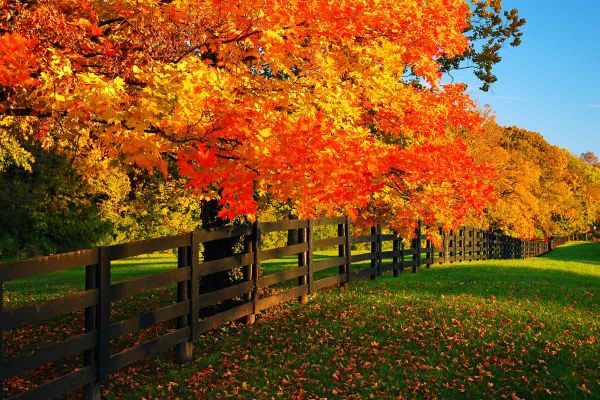

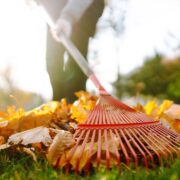
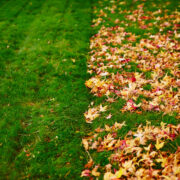
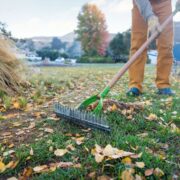




Comments